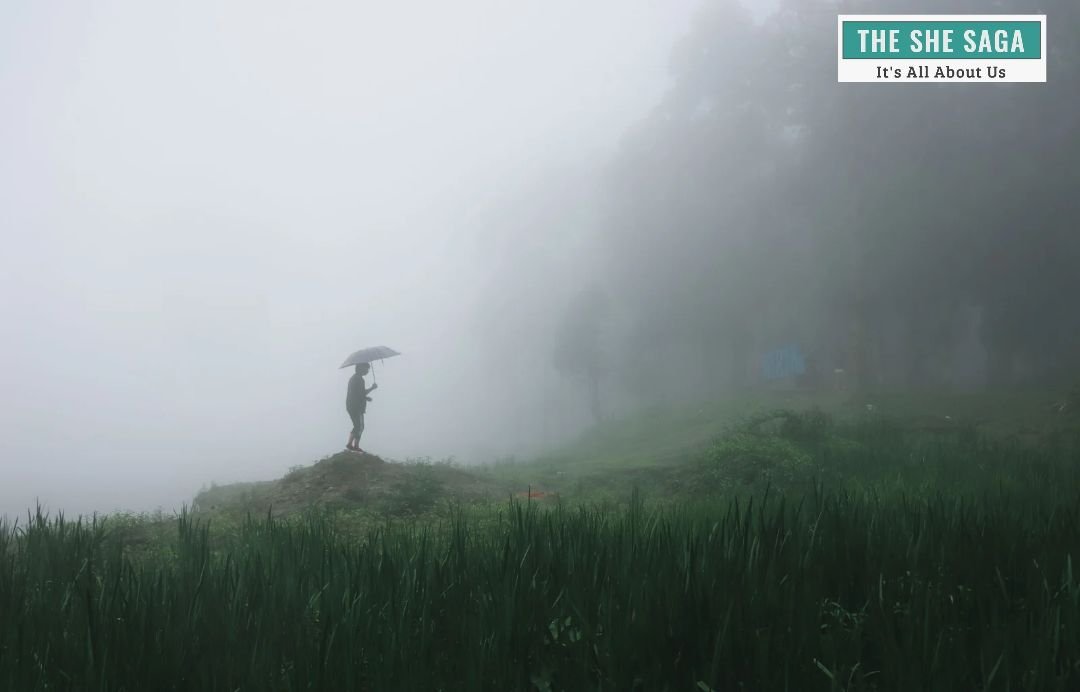Last year, on this very day, I made an audacious attempt in one of my articles—as a SHE—to ask another if we are truly free to live our freedom.
Revisiting The Fetters To Fuel The Freedom
By deconstructing the dilemmas of the seven brides in Zoya Akhtar and Reema Kagti’s popular series Made in Heaven 2, I explored the diverse facets of freedom and the fascinating ways to experience it. While a few could savor their “one taste of heaven,” most were fettered by their own inhibitions and found it customary to accept abuse and alienation.
Not much has changed since then. Yes, women are shattering the glass ceiling, and women’s empowerment is the talk of the day, yet we cannot overlook the abuse that has perhaps become less visible but far more lethal.
Scarred By Verbal Abuse – Is It For Real?
One of the recent Bengali web series, Lojja, brilliantly captures a form of abuse that stems from a deep-rooted misconception of what ‘being free’ truly means. The narrative traces a married couple’s life: Jaya, a docile and dutiful homemaker, and Partha, a successful man with a loud and arrogant demeanor. But the dynamics of their relationship are appalling and almost unbelievable.
Partha, the husband, blatantly perpetrates domestic violence against his wife, but the poor, submissive victim is unable even to acknowledge it. Can you guess why? The reason is simple yet shocking. It’s not physical assault, which leaves scars and marks behind, but ruthless verbal abuse that causes trauma, which can neither be hidden nor healed.

Interestingly, it is the social conditioning of the women, including the protagonist Jaya, her mother-in-law, and her own mother, that normalizes verbal mistreatment. This conditioning makes even the victim wonder if her torture is real or if she is merely overthinking and overreacting to mundane marital issues.
It is as if material comfort and having children—and not respect and equality—are the parameters for determining the well-being of a marriage and its continuity.
So, Partha continues to demean Jaya in private as well as in public, gaslighting her until she is reduced to a confused mess. Bereft of control and confidence, she is dragged to an asylum by Partha, who has devious designs to prove her demented. It is at this juncture that Jaya decides to break free, with the help of her colleague Mou and Mou’s friend Surjo, who also happens to be a competent lawyer.
Free to Appreciate Self-Respect?
“Apnader moto meyeder na, nijeder aaynar shamne boshiye bojhano dorkar, Kishe lojja pawa uchit …aar kishe lojja pawa uchit noy”
(Women like you should be made to confront their reflections to understand what should be the real causes for feeling ashamed and what should not.)
It is perhaps Surjo’s words that enable Jaya to accept that shobdo (words) can completely violate an individual. For the first time, she takes legal steps to liberate herself from the confines of her glittering marital cage into a space of self-regard and freedom.
Free To Communicate Consent?
On a similar spectrum but on the other end are characters like Aparna from another series, Noshtoneer (Seasons 1 and 2). Aparna seems to be enveloped in marital bliss until an upheaval suddenly overturns her existence. The happiness and harmony with which she smoothly runs her family and store are suddenly shattered when her suave, artistically inclined, professor husband, Rishabh, is slapped with #MeToo charges.
Initially, Aparna is trapped in her comfortable bubble and, like a typical ‘good wife,’ defends her husband and his reputation. That is until she meets Godhuli Basak, the student who had accused Rishabh of sexual exploitation without any sort of emotional support. “In spite of repeated, forced, unprotected sex” are the victim’s words that haunt Aparna. Combined with the death of Godhuli and her unborn fetus, this triggers Aparna to seek the truth.

Gradually, the Rishabh that emerges is not only a megalomaniac but also a man adept at manipulating and sexually abusing women. Each time, the guise is of a consensual relationship, but at its core, it clearly lacks consent and conscience.
Free To Break Through Illusions?
A woman who embodies freedom experiences empathy and emancipation.
Aparna perhaps feels the same by serving a divorce notice to her husband and signing the suspension of the accused professor. Her transition from homemaker to crusader for justice is poignant yet purposeful.
In Season 2, a slightly faltering but steadily progressing Aparna uncovers more ugly truths about Rishabh’s atrocities and Machiavellian acts. This time, she joins hands with another victim, Suroma Biswas, who was exploited, harassed, and finally ghosted by the conniving Rishabh until revenge became her only recourse.
“Meyera mukh bondho rakhte rakhte…hoy hariye jay…noy to more jay…” (Women embrace silence until the point they are either lost or dead!) These words linger, and the candle march is the sound of the bugle before the big battle.
Is This The Price Of Freedom?
My article was finished yesterday, and I was about to submit it when a piece of news came in. All I can say is that the reality is far more ravaging than the reel. I am appalled and choose to refrain from voicing my thoughts at this moment.
The body of a 31-year-old postgraduate trainee doctor was found in the seminar hall of Kolkata’s R G Kar Medical College and Hospital.
She was sexually assaulted and brutally injured before being ruthlessly murdered. She was profusely bleeding from her eyes, mouth, and private parts. After reviewing the CCTV footage and tracking down a Bluetooth headset at the crime scene, a suspicious ‘outsider’ was arrested by the police.
While everyone demands the death penalty for the accused, I am petrified by the diabolical nature of humans on the eve of Independence.

By Promita Banerjee Nag
An avid word enthusiast and content-churner, Promita is fuelled by novel writings, ideas and light-hearted banter. A teacher by passion, she treads the path of unequivocal learning with and through her students. Mother, music and ‘mishti’ mostly convince her. If you wish for a tête-à-tête, feel free to reach out to her at promita033@gmail.com.

















Facebook Comments